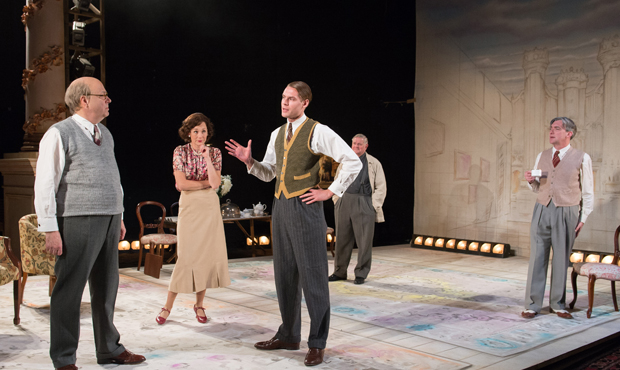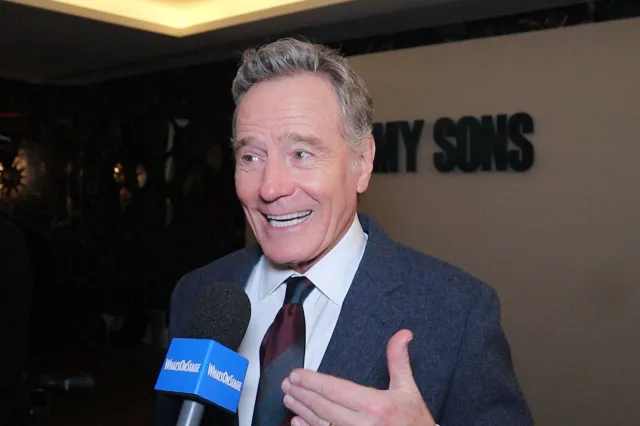The Moderate Soprano (Hampstead Theatre)
David Hare’s new play recounts the story of the inception of Glyndebourne

© Manuel Harlan
The trouble with handing out four or five star ratings, as I've been doing lately with alarming frequency, is that you feel some poor sucker's got to get it in the neck tomorrow. Well, hey, as the new Times critic is wont to exclaim, hold that chopper, here comes another high five for David Hare after a whole bunch of them down at Chichester for his revelatory early Chekhov season.
What a year Hare's had in his native Sussex landscape: a delightful memoir of childhood and schooldays, the game-changing Chekhovs and now this beautiful account of the inception of Glyndebourne before the war, a tapestry of intrigue and pragmatism, artistic endeavour as a form of patriotism, musicians on the run, dictatorship, idealism, patronage, Mozart and love.
The moderate soprano herself is Audrey Mildmay (Nancy Carroll), much younger wife of John Christie (Roger Allam in a bald wig), who founded Glyndebourne in his own back garden in 1934 and launched this most British of institutions, ironically, with the aid of Nazi-fleeing German emigrés – conductor Fritz Busch (Paul Jesson), director Carl Ebert (Nick Sampson) and his Austrian assistant Rudolf Bing (George Taylor, surprisingly tall for Bing).
Jeremy Herrin's elegant production – designed on an angle by Rae Smith as an unstuffy version of the Glyndebourne organ room, without the organ, but with two vast Persian carpets, a bisecting hint of a theatrical proscenium and lush swagging – lays out the story with precision, wry charm and lots of good jokes ("The people of Tunbridge Wells seemed strangely indifferent to Parsifal," and so on).
How lovely, too that Roger Allam, hilarious as a blustery Glyndebourne-goer in the new Alan Bennett/Nicholas Hytner movie, The Lady in the Van, is the intemperate, Wagner-loving Christie who delivers a wonderful speech about why people should jolly well dress up and pay lots of money, spend a day of their lives, to commune with genius and great art in perfect surroundings.
The point is, and it's well made, that Glyndebourne achieved, and maintained for years, unprecedented standards in British opera production thanks to foreigners. It's a metaphor of the benefits of immigration. And Audrey, who was a touring soprano with the Carla Rosa light opera company, has to audition even though it's Christie's one absolute condition that she sings in the opening season.
The play darts back and forward in time, and the fourth wall is broken down in rotation by the characters: Christie laying down the law, Bing (the first director of the Edinburgh Festival in 1947) commenting on his style and character, while Audrey languishes and Christie meets Busch for the first time in Amsterdam. It's an artfully compiled mosaic, and it glints and ripples with exquisite acting.
In a sort of structural pincer movement we reach the end of the love story at the start of the show: Carroll's Audrey flits in Marriage of Figaro costume to her dressing room as Jesson's Busch slyly eyes the audience and raises his baton for the glorious overture. It's one of the most poignant, theatrical scenes Hare's ever written, something akin to a scene of his own in Amy's View, or moments in Peter Shaffer's Amadeus, or with Mark Rylance in Farinelli and the King. It is fully earned from the rest of the play and fully deserving of the heartfelt cheer that goes up, even allowing for the partisan nature of a first night audience.
The Moderate Soprano runs at the Hampstead Theatre until 28 November.












